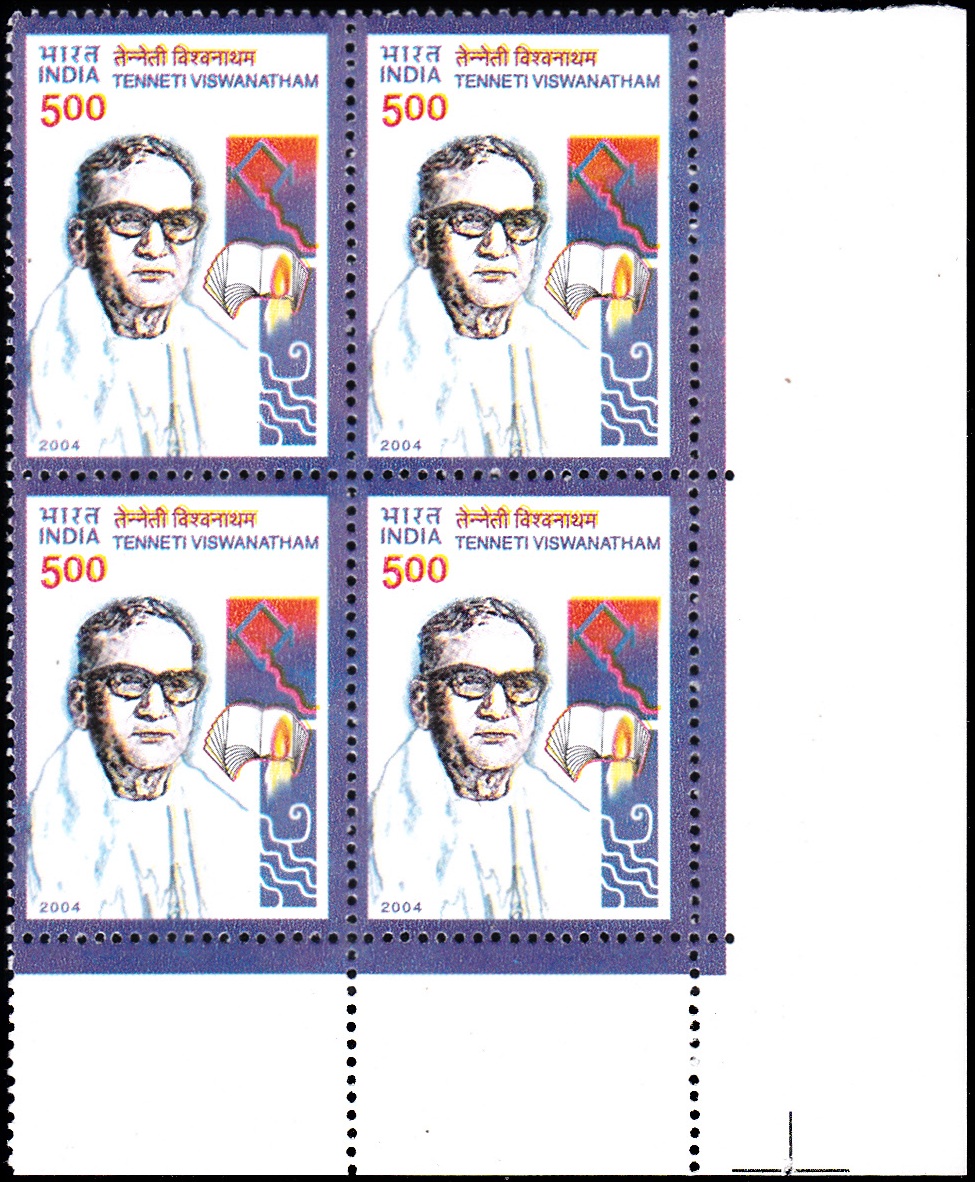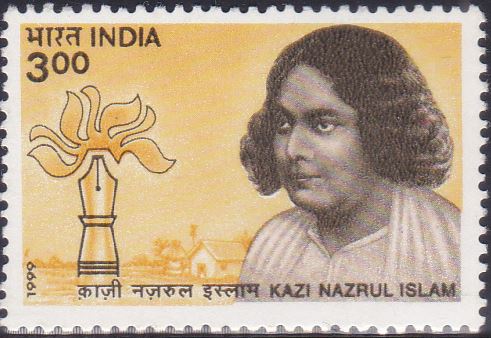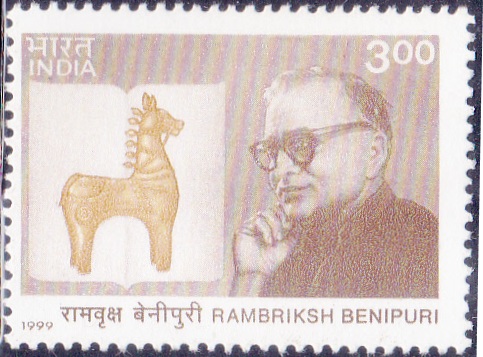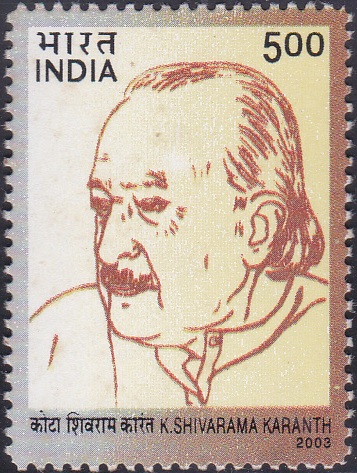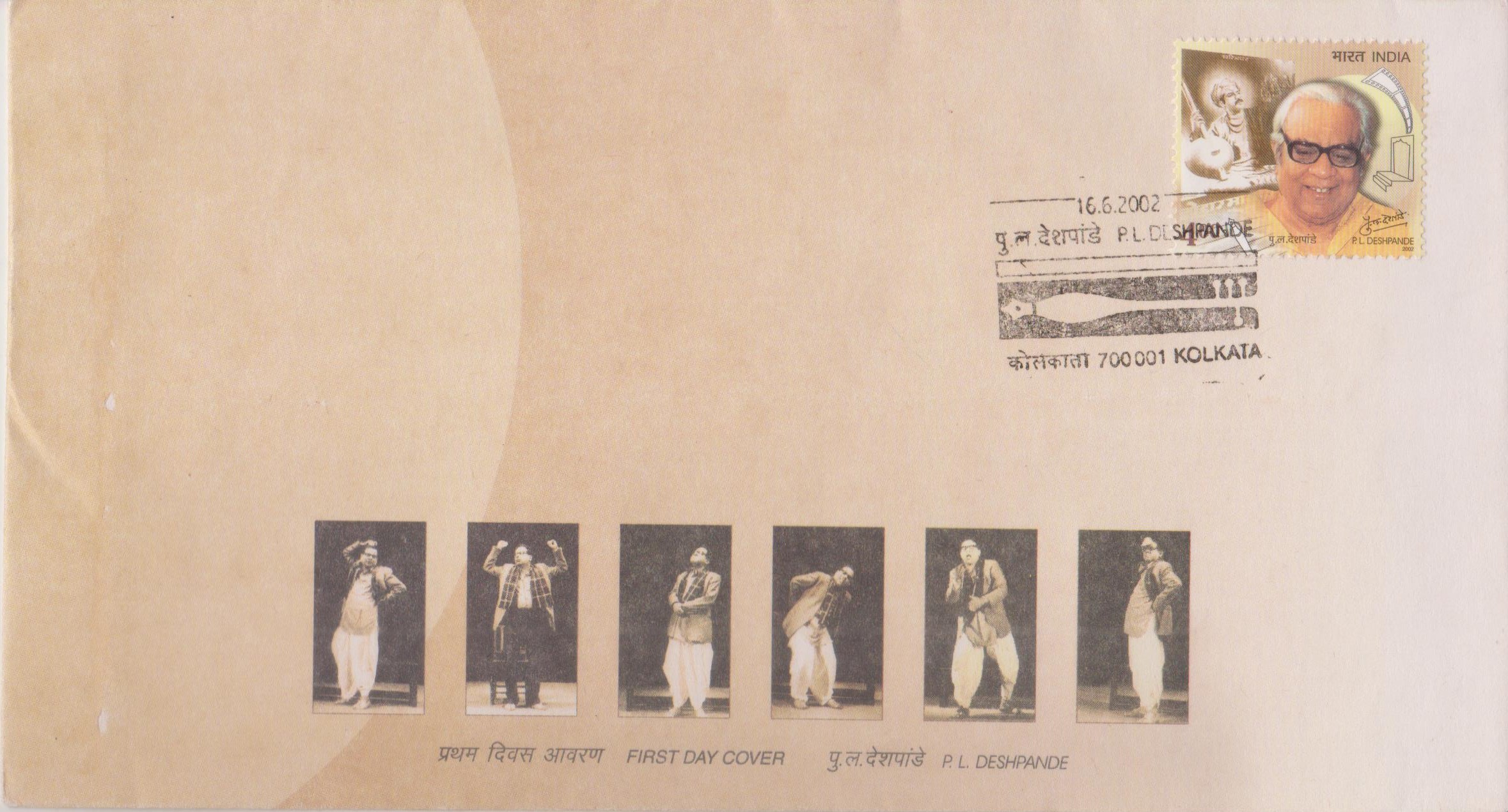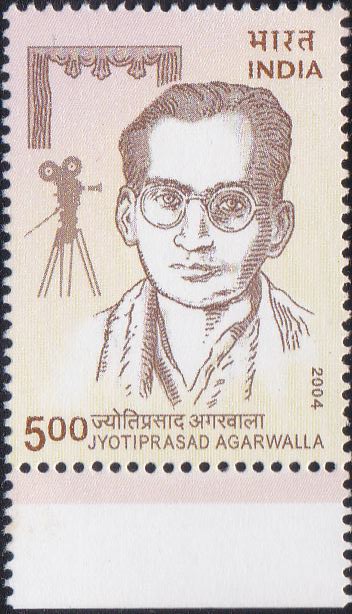
Jyotiprasad Agarwalla
A commemorative postage stamp on the Birth Anniversary of Jyoti Prasad Agarwala, Rupkonwar of Assamese culture and founder of Assamese cinema :

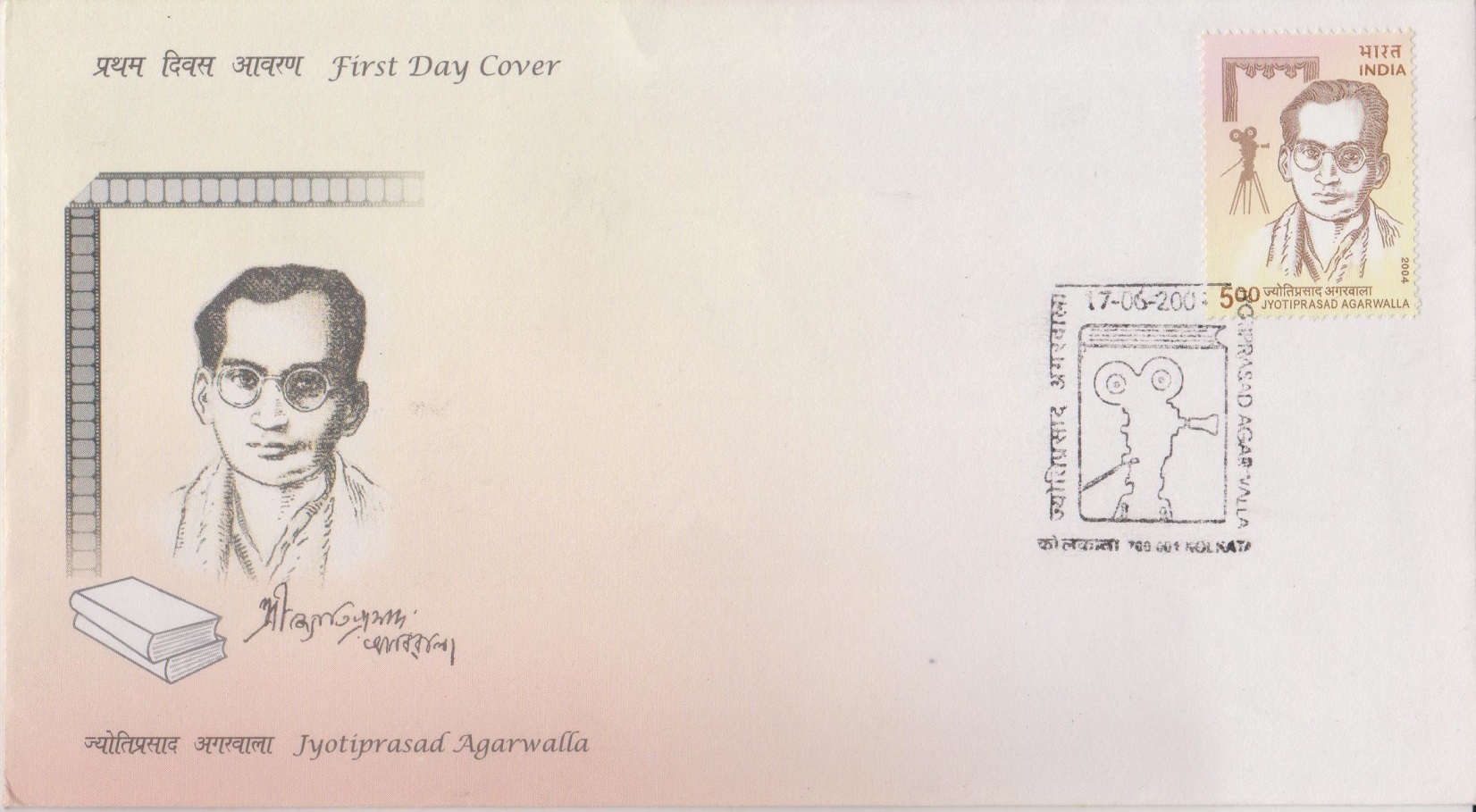 Issued by India
Issued by India
Issued on Jun 17, 2004
Issued for : The Department of Posts pays rich tribute to his greatness by release of this commemorative stamp.
Credits :
Stamp & FDC : Sankha Samanta
Cancellation : Alka Sharma
Type : Stamp, Mint Condition
Colour : Multicolour
Denomination : 500 Paise
Print Quantity : 0.4 Million
Printing Process : Photogravure
Printer : India Security Press, Nashik
Name : Jyoti Prasad Agarwala
Born on Jun 17, 1903 at Tamulbari Tea Estate, Assam, India
Died on Jan 17, 1951 at Tezpur, Assam, India
About :
- Jyotiprasad Agarwalla was a cultural icon, a nationalist, a musician, a poet and above all a humanist. He believed that “man derives supreme happiness in life by the complete propagation of culture”, and his life was a reflection of his belief.
- He was born on 17th June 1903 to Parmananda Agarwalla and Kiranmoyee Devi. His early education was in Tezpur High School, Dibrugarh. He left school inspired by the influence of Gandhiji when the latter visited Tezpur in 1921. Later he completed his education from Chittaranjan Das University and National College Calcutta. What flickered as a flame of patriotism in the young heart flared into a lifelong fire of nationalism. Jyotiprasad Agarwalla became an active Satyagrahi in the 1930s and toured extensively in the rural areas of Tezpur. He composed many patriotic songs that inspired the younger generation. In 1932 he was arrested for his activities and fined Rs. 500. In this turbulent period, he married Debajani Bhuyan of Dibrugarh in 1936. During the Quit India movement, as a commander of the volunteer force, Jyotiprasad remained underground spreading revolutions message. He remained a pacifist and on Gandhiji‘s advice, surrendered to the British at the Darrang District Court on 15 August 1943. He was tried but released for want of evidence.
- The multifarious talent in Jyotiprasad Agarwalla flowered early. The artistic atmosphere of Tezpur and the inspiration from his music loving father were the elements which built the climate conducive for such flowering.
- He penned “Shonit Kunwari“ at the age of 14. It was a musical dance drama with an experimentation in “Padumkali” dance, a combination of “Bihu” and ‘Bhawna’. In 1924 it was staged for the first time in the Ban theatre and it became a milestone in the history of Assamese drama. His other works were Karingarligiri, Rupalim, Labhita, Nimati Kanya.
- A prolific poet, he wrote with a flourish using chaste and sweet Assamese words. He also wrote ‘Jyoti Ramayana‘, considered to be one of his most notable contributions towards children’s literature.
- He also introduced ‘Jyoti Sangeet’, a combination of Assamese, Hindustani and Western music.
- In 1926 he left India and joined Edinburg University in 1927. He was influenced by the prevalent trends of experimentation in music and drama and the huge strides in cinema. He studied cinematography in Berlin in 1929.
- After return to India, he made “Joymati” the first film in Assam and also a talkie in the age of silent films. It was released on 10th March, 1935 and ushered in a new chapter in the cinematic history of Assam. The film was far ahead of its time in cinematic technique and was marked with subtle and realistic acting. His next film was “Indramalati“. He established ‘Chitraban‘ the first film studio, ‘Jonaki’ the first theatre, and also ‘Tezpur Sangeet Mahavidyalaya’. He also made the first gramophone records of his plays along with Shri Bishnu Prasad Rabha, the famous litterateur.
- Jyotiprasad Agarwalla devoted his entire life to rejuvenate Assamese society. The theme of unity between the ethnic groups of Assam flows through his literary output. The way to cultural change, according to him was through empowerment of the masses. He fought for establishment of Assamese as the official language of Assam. Guwahati University is another example of his selfless and tireless efforts.
- For his contribution to the Assamese literature, music and culture, he is lovingly called the ‘Rupkonwar‘, i.e. the Prince of Beauty.
- Jyotiprasad Agarwalla died on 17 February, 1951. This day is observed as ‘Silpi Diwas’ in Assam.
- Text : Based on material given by the proponent.
Subscribe
Login
0 Comments


